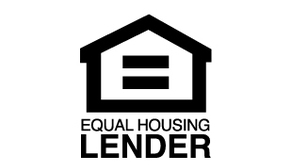The home buying process is a considerably stressful one, especially if you are a first-time homebuyer. Whether you are a first-time homebuyer or you have been through the process before and are in need of a refresher, have a look at this comprehensive guide to the home buying process and make sure you make an informed decision.
How To Start The Homebuying Process
Buying a house requires a lot of time and effort, but the process begins with a few simple steps. First, you should consider reaching out to a mortgage consultant who can determine what options are available to you and help you select the best loan for your unique set of circumstances.
Next, it’s time to determine how much you can afford to pay for your new home. As a rule of thumb, lenders generally recommend that you look for homes that cost approximately three to five times greater than your annual household income.
This may vary from one person to another, but it’s generally true for buyers who have at least a 20% down payment and only a moderate amount of other debt.
Getting Pre Approved For A Mortgage
After having a look at your options for properties in the area you are interested in, it’s time to get pre-approved for a mortgage. You will need to know how much you can actually spend before deciding which property you would like to call home.
To get preapproved for a mortgage, you need to provide some financial information to your mortgage providers, such as your annual income and the amount of savings and investments you might have.
After reviewing this information, your mortgage banker will be able to tell you how much you can borrow. When you have this information, you can start looking for homes in the price range you were pre-approved for.
Processing Paperwork In The Homebuying Process
In order to be preapproved for a mortgage, you will need to provide your mortgage banker with some paperwork. This is necessary because they need to assess your financial situation, particularly your income, assets, and debts to be able to determine what loan would suit your needs.
There are no hard and fast rules when it comes to the type of paperwork you will need to provide to buy a home, but generally, you will have to show bank statements, pay stubs, or
- Pay Stubs (from the last 30 days)
- W2 or 1099 (from the last 2 years)
- Tax Returns (from the last 2 years)
- Bank Statements (from the last 2 months)
- Any statements (from the last 60 days) of other assets such as stocks or a 401K
It’s also important to provide proof of how you gathered your down payment, especially if this wasn’t done by putting money aside from one month to another. Before receiving pre-approval, your lender might also check your credit reports and scores. Lastly, you will be asked to provide your employer’s human resource office phone number to verify your employment status and a copy of your valid State ID or Driver’s License.
What If Someone Gifts Me Funds To Buy My Home?
More and more first-time buyers are relying on gifted deposits to use as a down payment for their new home. Whether it’s money your grandparents saved in a shoebox or a generous gift from your parents or loved ones, monetary gifts can go a long way towards helping you purchase a home.
Nevertheless, the source of all the funds being used as a down payment will need to be verified by your mortgage lender. Many lenders require a gift funds letter from the donor that proves the money is a gift that will not have to be repaid.
To avoid any issues, you have to confirm the relationship between you and the donor and get a letter that confirms that the money is indeed a gift and not expected to be repaid. Here’s what the letter should include:
- The donor’s name, address and phone number
- Explanation of the relationship to the borrower.
- The dollar amount that was gifted.
- The date the funds were transferred.
- A clear and precise statement from the donor that no repayment is expected.
- Donor signature.
- The address of the property being purchased.
The gift funds letter needs to be signed by both parties. In some cases, the lender might require further evidence of this gift, such as the bank statements of both the receiver and the donor which show the transaction.
If the monetary gift has to be repaid it is considered a loan. Your mortgage lender may have to incorporate the repayments to your monthly outgoings, which can have a severe impact on your affordability. This is why it is so crucial that you communicate with your mortgage lender throughout the loan process.
Why Do I Need To Pay Earnest Money?
Earnest money is a deposit that you make as a buyer so the seller knows you’re committed to purchasing the property. It’s a representation of your good faith, and it gives you some extra time to complete all the inspections, property appraisal, conduct the title search, and get financing before closing on the house.
In most cases, earnest money can be considered an escrow deposit. It is generally delivered when you sign the purchase agreement or sales contract, but other times it can be attached to the offer.
The funds are typically kept in an escrow account until you close on the house, and then applied to your down payment and closing costs. The value of the earnest money deposit can be anywhere from 1 to 10% of the sales price, depending on the agreement between seller and buyer and market interest.
As a buyer, you may be able to recover the earnest money deposit if something goes wrong before closing on the house. This may be anything from inspections revealing a serious defect to the house not appraising for the sale price.
Nevertheless, you should keep in mind that earnest money is not refundable just because you decide to change your mind as a buyer. You may also lose the deposit if you fail to meet the timeline outlined in the contract or if you decide not to go through with the purchase for contingencies that are not listed in the contract.
Remember that the earnest money is always refunded to the buyer if the seller decides not to go through with the sale.
Do I Need Homeowner’s Insurance and Who Should I Use?
After signing a purchase contract for your new house, you need to start thinking about getting homeowner’s insurance.
A good place to start is your loan officer, who may refer you to companies they trust and recommend. Reach out to several insurance companies to get some quotes and choose the one that suits you best.
In most cases, you’ll need to purchase homeowner’s insurance before closing. Failing to do so may mean that the loan can’t be finalized. Procuring mortgage insurance is for your own good, as it protects the property financially against fires, natural disasters and other events such as theft.
Having homeowner’s insurance also protects the interests of the mortgage provider, and it’s the reason they require proof of coverage before closing on a house.
Avoid Big Financial Transactions
While going through the home buying process, it’s important to avoid making financial mistakes that may cost you in the long run. When it comes to the process of closing on your home, transparency is key, so you should avoid making any big financial transactions that might raise suspicions. Here are some of the common mistakes that you should avoid.
1. Do not make any large deposits.
Large deposits could indicate that you have recently borrowed money. This kind of information could spur a reevaluation of your DTI ratio. The rule of thumb for making deposits is that no deposits, apart from direct deposits from payroll, should exceed 25% of your gross total monthly income. You should also avoid moving money between accounts or making frequent smaller deposits.
2.Pay your credit card and loan payments on time.
Since your ability to make timely payments is one of the most important factors that determine your credit score, it’s extremely important to maintain a clean record of payment history.
3.Avoid large purchases.
Large unplanned purchases could drastically change your savings plan. Don’t accumulate more debt by applying for more loans. Negative effects to your credit rating could mean negative consequences for your mortgage application.
4. Do not open a new bank account.
Once you’ve started the mortgage application process, it’s highly recommended that you do not open a new bank account.
Be open and transparent with your mortgage banker about your finances and they can help you avoid these common pitfalls.
Getting a Credit for Repairs Before Closing
During the homebuying process, you may notice items around the property that require repair. If you want to take care of this before closing, you have two options.
First, you can ask the seller to repair them, but there is no guarantee that they will agree to do it. Your realtor can give you advice when deciding what repairs to ask for from the seller.
Your second option is to apply for credit for repairs before closing. But you need to be careful when applying for this because it cannot be called a “repairs credit”, as this name may indicate to the bank that the property is uninhabitable.
Try to get help from your attorney or realtor to make sure you are able to obtain a credit called a “closing cost credit” that you can use for repairs after closing.
Why Do I Need to Provide My Federal Tax Transcripts?
Your loan officer may ask you for your federal tax transcripts for the current year and the previous two years as well.
The mortgage company that provides you with the loan for buying a property needs to confirm that you have filed your tax returns with the IRS. This is a necessary step to prevent fraudulent loan applications from going through the mortgage process.
To obtain the transcripts, you can go to the IRS website and follow the instructions provided. Alternatively, you can call and talk to a representative to obtain the transcripts. You can ask for the transcripts to be faxed directly to your loan officer. This should generally not take more than half an hour.
This process is essential if you’re self-employed because it’s the best way for the bank to verify your income.
Should I Pay Points when Buying a Home?
Mortgage points are a common way for prospective homeowners to lower their interest rate when buying a home. Paying for points on a mortgage means that you are actually paying interest for the loan right now.
You may wonder what’s the benefit of doing this. In return for paying for points, you can lock in a discounted rate, which depends on the number of points you decide to purchase. The more points you buy, the more likely it is that your mortgage rate will drop.
As a rule of thumb, one point translates into a 0.25 percent deducted from the mortgage rate. The cost of a point is 1 percent of the total mortgage amount. For example, if you obtain a $300,000 mortgage, one point would cost $3,000. Depending on your financial situation, you may purchase more than one point to reduce the interest rate as much as possible.
Most lenders allow you to purchase points, but it’s not mandatory to go down this route. Borrowers can also consider refinancing. Some lenders allow you to negotiate mortgage points, but you should always talk to your loan officer in order to be able to determine whether buying points is a good option for your particular financial situation.
There are essentially two kinds of mortgage points:
– Discount points
– Origination points
It’s up to you how many points you choose to pay so you can secure your desired rate and closing fees. You will need to discuss this with your loan officer if you conclude that paying points is right for you!
You can check out this wonderful animated video for an even better idea of whether paying points on a mortgage is a good move for you.
How Can a Loan Officer Help with the Loan Application Process?
The process of applying for a mortgage can be indeed an overwhelming one, especially if you are a first-time buyer. By working with the right loan officer, you can get help with everything from the pre-approval process to the mortgage application, loan processing, underwriting and closing.
The loan officer will help you prepare your application, and they will generally have to deal with a lot of paperwork because of the various mortgage regulations at the local, state, and federal levels.
When choosing a loan officer, you should make sure they have an excellent reputation and that they are always maintaining industry standards. They should be able to bring expertise to the loan process.
At A and N Mortgage, you can choose from loan officers who specialize in different loan programs. You can get pre-approved fast and explore multiple loan options and interest rates. You can get the help you need whether you are a first-time homebuyer, you’re relocating to a new job, or buying an investment property.
A and N Mortgage can help you every step of the way thanks to the team of experienced mortgage professionals who will do their best to help you find the ideal loan product for your situation and secure funding with the best terms.
Contact A and N Mortgage today with all your mortgage-related questions!
A and N Mortgage Services Inc, a mortgage banker in Chicago, IL provides you with high-quality home loan programs, including FHA home loans, tailored to fit your unique situation with some of the most competitive rates in the nation. Whether you are a first-time homebuyer, relocating to a new job, or buying an investment property, our expert team will help you use your new mortgage as a smart financial tool.







